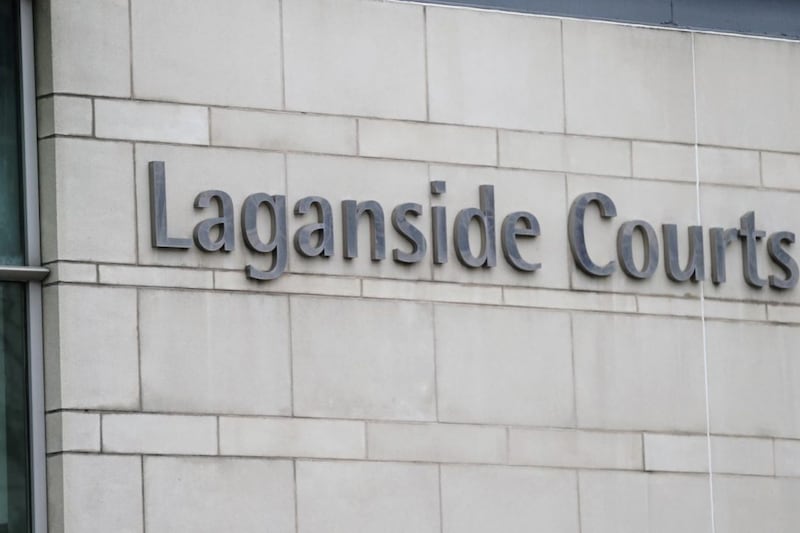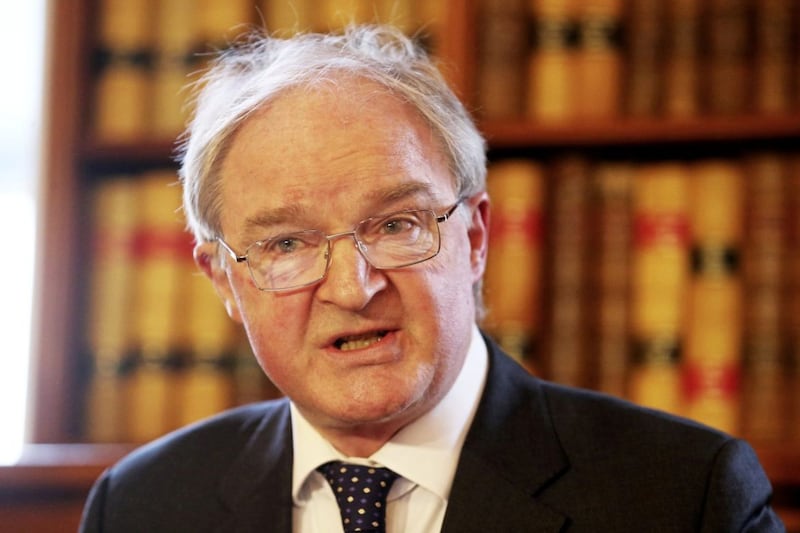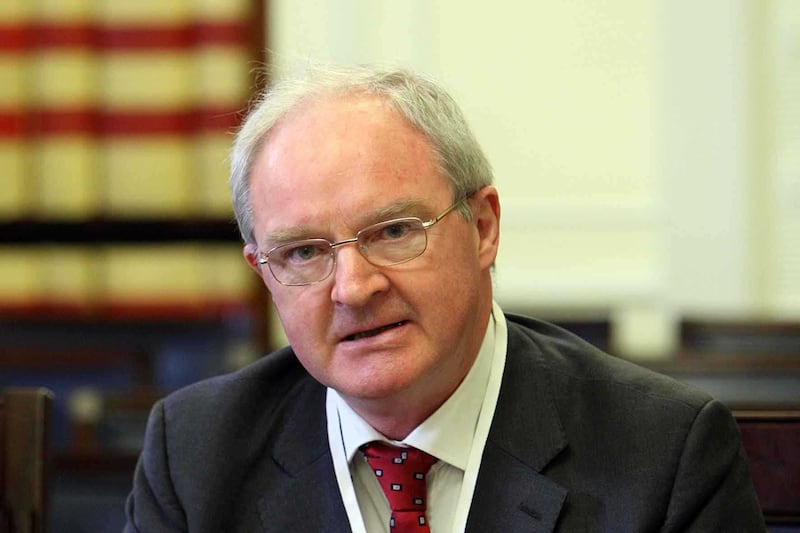A senior judge has accused the British government of failing to properly resource a series of long-delayed inquests into almost 100 Troubles deaths.
Lord Justice Weir branded some of the "excuses" offered by state agencies for the lack of progress as "preposterous".
The judge is conducting a major review of the stalled inquests on behalf of Northern Ireland's Lord Chief Justice Sir Declan Morgan.
There are 56 cases relating to 95 deaths stuck in Northern Ireland's coronial system. Almost half the inquests relate to deaths dating back more than 40 years.
Delays in security checking classified police and military papers ahead of disclosure to the coroners' courts have repeatedly been highlighted as the main obstacle in the way of progress.
During a hearing related to the inquest of loyalist paramilitary shooting victim Terence McDaid, the judge was again told disclosure by the Police Service of Northern Ireland (PSNI) and Ministry of Defence (MoD) was being hampered by lack of resources.
Barrister Mark Robinson, representing the MoD and PSNI, insisted work on all 56 cases could not be done simultaneously.
Judge Weir responded: "They could be done simultaneously if they were adequately resourced.
"The only thing stopping them being worked on is an absence of resources and the government provides the resources.
"These cases are being delayed because the government is not adequately funding the work."
Mr McDaid (29) was gunned down inside his north Belfast home by the UDA in 1988.
Claims that state forces colluded with the killers – by way of British army agent and senior UDA member Brian Nelson, now deceased – have been examined in a series of official investigations by former Metropolitan Police Commissioner Sir John Stevens, Canadian Judge Peter Cory, and QC Sir Desmond de Silva.
The same probes examined Nelson's alleged role in the UDA murders of solicitor Pat Finucane in 1989 and 27-year-old Gerard Slane the year before.
At Monday's hearing in Belfast Laganside Courts, Judge Weir made clear that the government, not the Coroners' Service, was obligated under international law to hold human rights-compliant inquests.
"If they can't assist with getting coroners' inquests on for that excuse, or this excuse, or the other excuse, then they will have to find some other way of doing it," he said.
The judge described some of the reasons for delay advanced in the first six days of his review as "preposterous", adding: "They don't improve with repetition."
Fiona Doherty QC, representing the McDaid family, suggested resources may not be the only issue.
"There is a history of the MoD and police obstructing inquiries and investigations into the actions of state agents," she said.
Judge Weir said in all the cases he has reviewed to date he has yet to find a "reasonable explanation" for the delays – "other than a disinclination to do the work".
"And the motive for that others can judge," he said.
The outstanding inquest for Mr Slane was examined later on Monday.
The Finucane family has not applied for a new inquest into the solicitor's death, insisting the murder should be examined by a full public inquiry – a demand that has been turned down by the government.
Judge Weir heard the Slane case was further towards hearing than the McDaid inquest, but stalled disclosure was still a feature.
He was told the family was awaiting papers from a range of bodies, including the Northern Ireland Office, the Cabinet Office and the NI Public Prosecution Service.
The judge questioned whether a form of public inquiry might be a more suitable means to investigate the issues related to the three killings.
Ms Doherty stressed that the McDaid and Slane families wanted inquests to be heard and suggested an inquiry was unlikely, given the government was "fighting tooth and nail" to prevent one in the Finucane case.
Outside court, Mr Slane's widow Teresa had a stark message for Secretary of State Theresa Villiers.
"I would appeal now to Theresa Villiers to get her government to hand over the information," she said.
"We need this information to move on. She is just prolonging our agony."
"The government are waiting on us dying and our kids, but I have got news for the British government – this family and many other families will continue on this, because there are generations of families.
"We will keep going and we will keep fighting until we get the truth. All we want is the truth and justice for Gerard."








